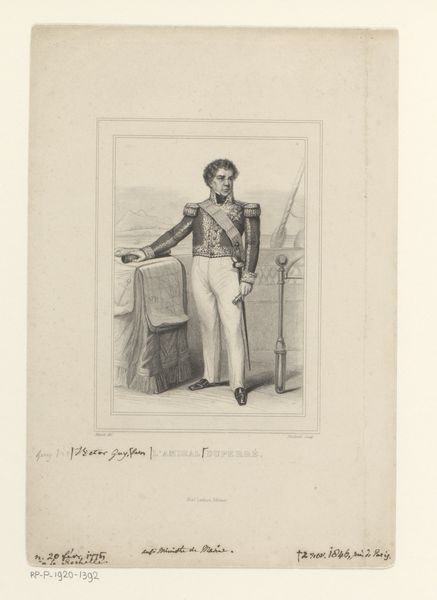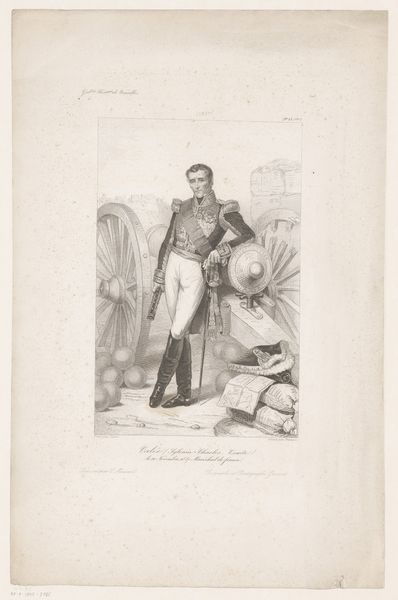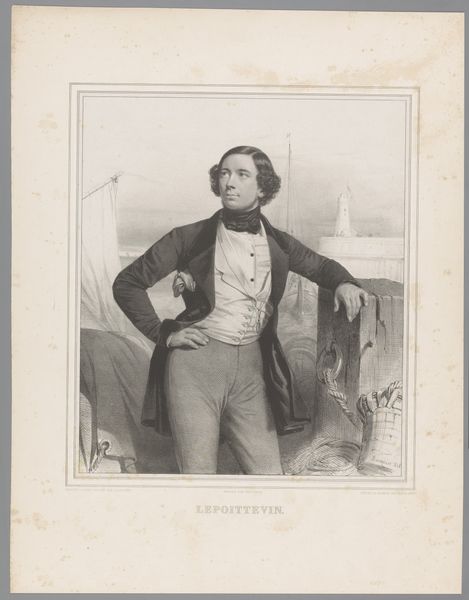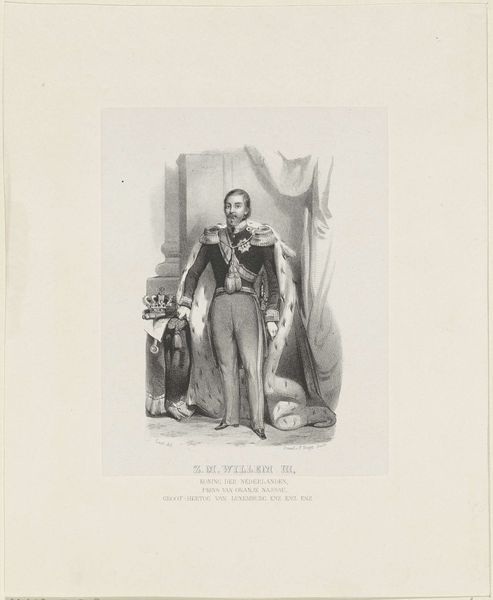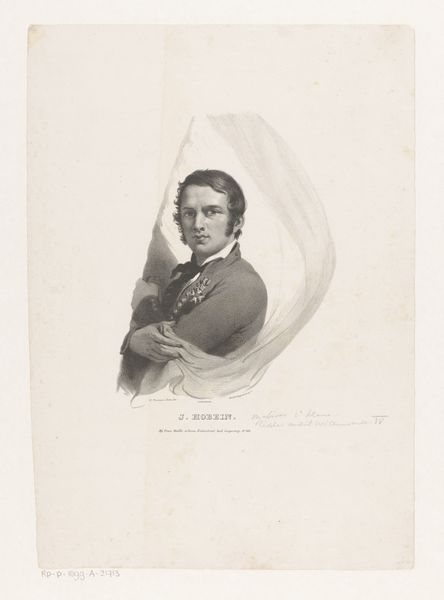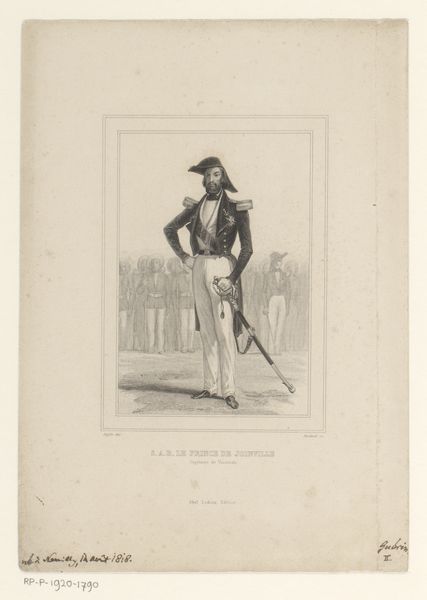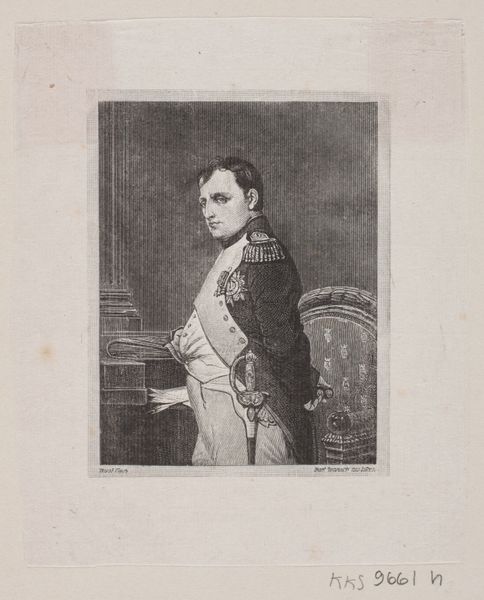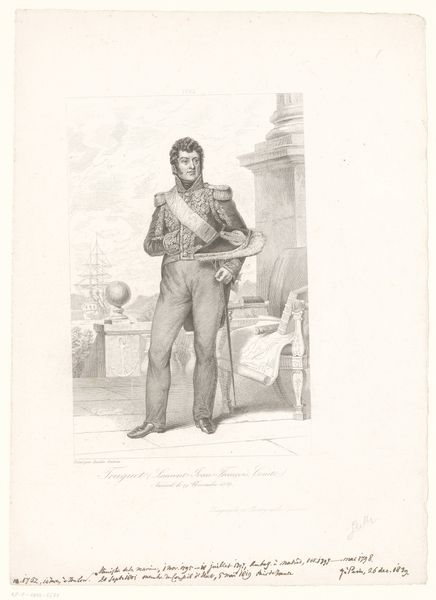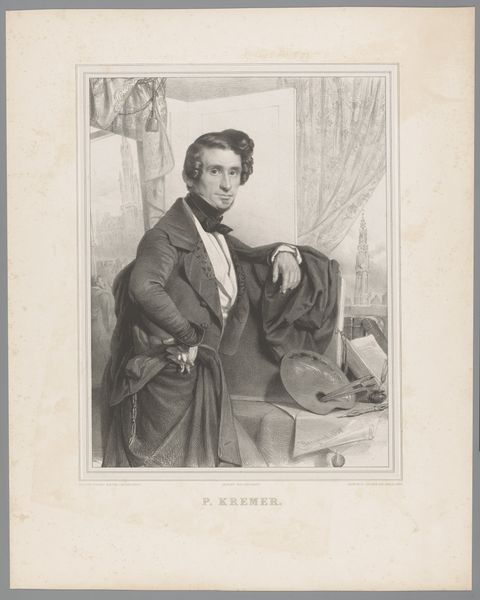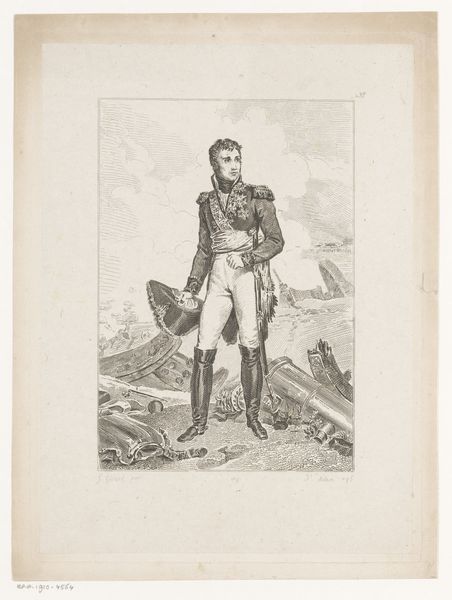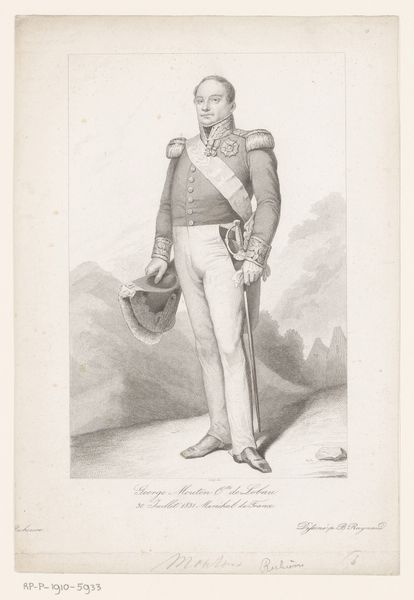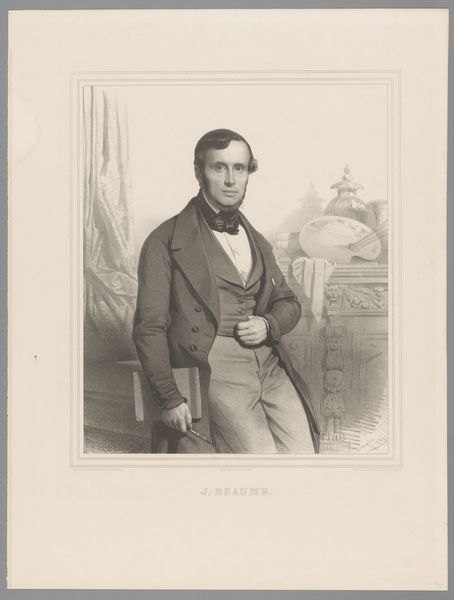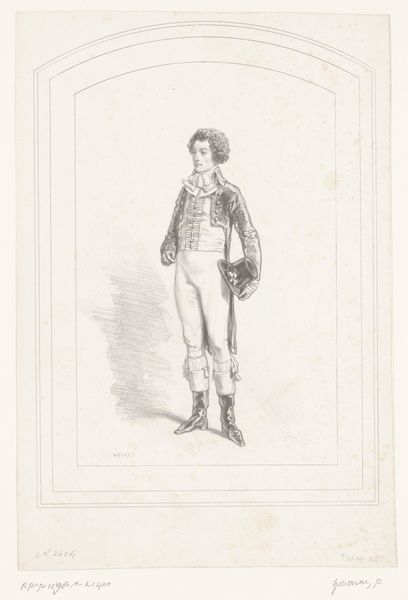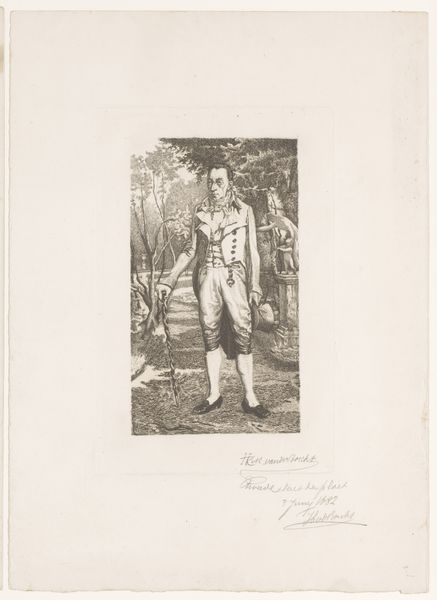
print, engraving
#
portrait
#
pencil drawn
#
neoclacissism
#
light pencil work
# print
#
pencil sketch
#
old engraving style
#
figuration
#
line
#
history-painting
#
academic-art
#
engraving
Dimensions: height 266 mm, width 255 mm
Copyright: Rijks Museum: Open Domain
Curator: This is Alphonse Boilly’s "Portret van baron Guy-Victor Duperré," an engraving that dates from 1811 to 1867. Editor: It's quite striking—the man is undeniably imposing. The detail in his uniform is really captivating. Curator: Boilly’s piece speaks to the visual language of power in the 19th century, situating Duperré within a matrix of class, military might, and national identity. It’s interesting to consider the politics of representation here—the conscious construction of an ideal, masculine figure against a backdrop alluding to France’s naval prowess. Editor: Absolutely. He almost becomes an emblem of France itself. The lines of the ship, simplified as they are, become visual metaphors. Do you notice the rather rigid and stylized depiction of the sitter's face? I can't help but think there are intentional symbolic decisions in every angle, in every button of his uniform. Curator: I'm particularly drawn to how this connects with broader discourses on French masculinity. Duperré isn’t just a portrait; he’s a signifier within a system of representation that actively excludes other identities. Editor: His posture, with his hand resting on the prop. All communicate confidence, duty, and service, values encoded in every facet of the work. What I think is especially intriguing here is how a 'simple' portrait actually resonates and transmits certain culturally ingrained expectations regarding leadership and military heroism. Curator: Looking at it through that lens helps us question whose stories get told and whose get left out. It's a potent reminder that art doesn’t exist in a vacuum, especially representations like this. Editor: Precisely! Ultimately, this is an example of how a picture does paint a thousand words - culturally loaded words at that.
Comments
No comments
Be the first to comment and join the conversation on the ultimate creative platform.
